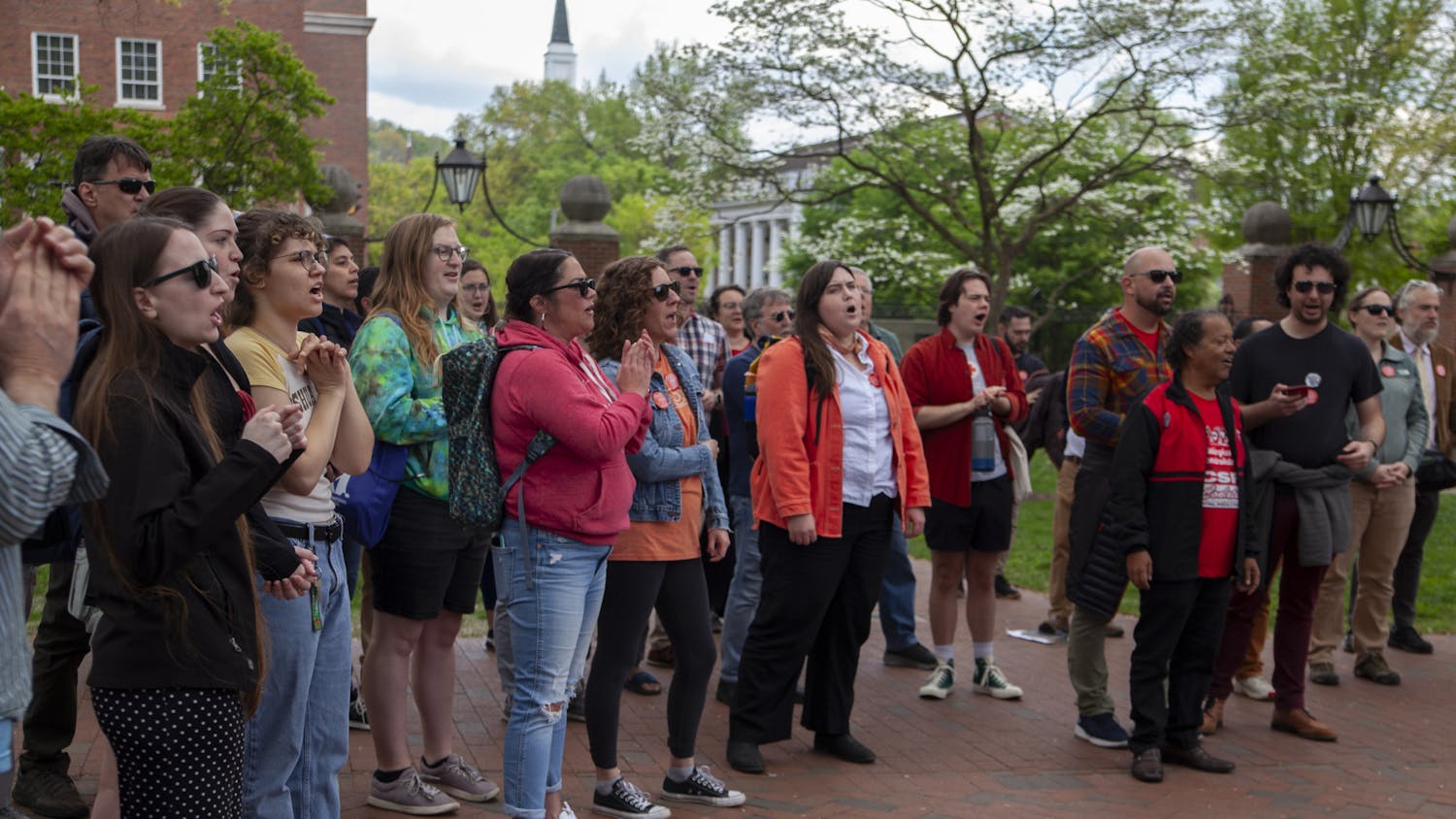18 years since the Athens Police Department formed it’s mounted patrol division, officers and horses alike have seen it all.
When Ranger makes his way through a bustling Mill Street on a weekend night, red-cup wielding partiers pause in wonder.
Ranger stops, his chestnut coat gleaming beneath the fluorescent street lights. He’s tall, strong and handsome — everyone seems glad he’s here.
“Can I pet him?” someone usually asks, arm already extended.
Athens Police Department Officer Destry Flick will nod, and Ranger’s neck is promptly stroked by a dozen students while Flick watches closely.
This Tennessee walking horse is used to it.
“It gives us an opportunity to be friendly,” Flick said. “I can’t tell you how many people come up to us every night when we’re out — even some repeat people.”
The horses’ friendly demeanor is exactly why the program started 18 years ago, APD Chief Tom Pyle said. Not only can a horse clear an area that would usually take more than a dozen foot officers, it can do so in a way that brings a great attitude toward the department.
But APD operates a little differently than the standard mounted patrol program would.
Most agencies rent their horses and provide them to the officers — while in Athens, it’s reversed.
Here, Pyle said, officers purchase their own horses and care for them at their individual homes. In turn, a better relationship is forged between horse and rider, with each animal receiving the personal attention it needs.
“I can read his body language. There are some nights where drunk people will be petting on him — Can you imagine 1,000 people petting your face in a three-hour period? — sometimes by the end of the night they’re worn out,” Flick said.
The department spent more than $10,000 on the program in 2013, according to APD’s annual report, not including overtime payments or regular officer salary. The eight horses each earn $12.50 per hour that the officers can spend, which Flick, for example, uses to purchase hay.
The unit clocked more than 336 hours altogether last year and brought in outside units for Palmer and Halloween weekends.
“Two of my horses, Independence and Ranger, are certified, I bought them and paid for them and I pay for all of the vet bills,” Flick said. “The city does reimburse us for some things like shoeing, and with a rental fee. But pretty much, they’re my property and they’re my family.”
Ranger has been working for more than a decade, passed on to Flick from retired lieutenant Randy Gray — who currently works with mounted patrol — several years ago. He’s been on the force just as long as some officers, along with seven other horses in rotation for the department’s mounted patrol sector, composed of two full-time and three part-time officers.
Currently, the staff consists of Gray, Flick, Neal Dicken, Ernie Antle and Tracy Mingus. Gray rides with his horses Skeeter and Chip, Dicken with Betty and Toby, Antle with OJ and Stockholm, and Mingus borrows her horses from one of the officers.
“I’ve worked 18 hours at different events,” said Flick, who’s been riding horses since 4th grade. “We judge whether our horses can do it or not.”
A typical night for a mounted patrol officer and their horse works like this: at 10 p.m. they’ll saddle up their horse and ride to the Athens County Fairgrounds.
From there, officers pair up and head Uptown for what’s usually a five-hour shift. They’re permitted to move at a trot if necessary, but usually keep their horses at a slow pace.
From that point on, they’re not dismounting their horses unless they’re in an incredibly dire circumstance.
“You’d have to ask if an unmounted horse poses more of a risk than what the person in front of you is doing,” Pyle said.
Eric Herman, a freshman studying mechanical engineering, said he’s only seen the horses from a distance so far — he’s not ready to pet one yet. He sees them as “scary.”
“They show intimidation,” Herman said.
During Palmer Fest 2012, a horse was injured when an officer attempted to clear a riot situation, where objects were being propelled at officers. A horse has even been stabbed before, Pyle said.
That’s one of the reasons why APD goes through such extensive training, and has been able to evolve into an experienced mounted patrol force.
Last year, officers attended training sessions in Columbus, Summit County, Allen County and Canada. They also certify their horses yearly through the Buckeye Mounted Posse, though there’s no state certification program.
But at the end of a five-hour shift, however, a police horse sheds it’s uniform just like Flick does.
“We get off by 3:30 a.m.,” Flick said. “We ride back, and then I let him go right back into the field. I let him be a horse again.”
@eockerman
eo300813@ohiou.edu






